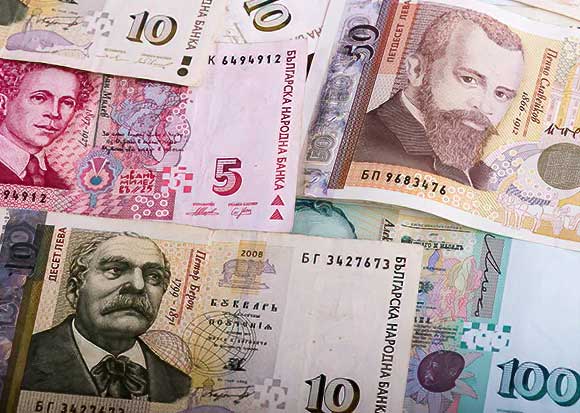Bulgaria trades in its unique currency, the Bulgarian lev (BGN), which breaks into 100 stotinki. Since its introduction in 1881, the lev has undergone numerous redesigns and revaluations, marking its evolution as Bulgaria’s official currency. This currency’s history reflects Bulgaria’s economic journey, making it an integral part of its identity.
Currency in Circulation
When you’re handling Bulgarian money, you’ll encounter a variety of coins and banknotes. Coins come in 1, 2, 5, 10, 20, and 50 stotinki denominations and 1 and 2 leva, offering a tactile glimpse into the country’s culture through their designs. On the other hand, banknotes paint Bulgaria’s economic landscape in denominations of 5, 10, 20, 50, 100, and 200 leva, each telling a story through its intricate designs and security features.
Bulgaria’s Position in the Eurozone
Although Bulgaria remains outside the Eurozone, the lev maintains a steadfast peg to the euro. This fixed exchange rate, sitting at about 1.95583 leva to 1 euro, anchors the lev’s value to the euro, ensuring stability and predictability in the exchange rate. This close relationship with the euro underscores Bulgaria’s economic connections to the broader European market.
Exchanging Currency in Bulgaria
For tourists and international visitors, converting foreign currency into leva is a must for navigating Bulgaria’s markets and services. While the lev’s reach doesn’t extend far beyond Bulgarian borders, plenty of banks and exchange outlets are ready to swap your currency for leva within the country. Although some businesses, particularly those in the tourist sector, might accept euros, paying in leva is usually the norm. Carrying leva for everyday transactions and smaller purchases is wise, ensuring a smoother travel experience. Additionally, exchanging major currencies like the Euro or USD for leva is conveniently possible at banks and currency exchange spots throughout Bulgaria.
Practical Tips for Currency Exchange
Before you exchange your money, here are a few tips to ensure you get the best value and experience in Bulgaria:
- Use small amounts and explore different currency exchange services to find the best rates.
- Be aware of the fixed exchange rate between the lev and the euro to understand how much currency you’re getting.
- Carry some leva for small purchases and in places that might not accept euros to avoid inconvenience.
By familiarizing yourself with the Bulgarian lev and the nuances of currency exchange in Bulgaria, you’re setting the stage for a hassle-free and enriching travel experience in this vibrant country.



